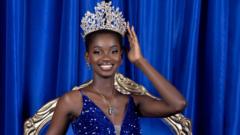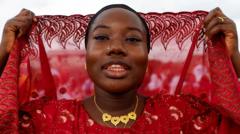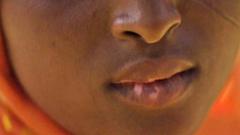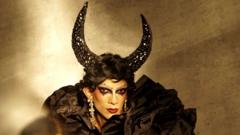As Ivory Coast shakes up its beauty pageant scene by banning wigs and hair extensions from preliminary rounds, a dialogue emerges on cultural beauty standards and self-acceptance among contestants.
Embracing Natural Beauty: Ivory Coast Pageant Bans Wigs and Extensions

Embracing Natural Beauty: Ivory Coast Pageant Bans Wigs and Extensions
Revolutionary changes in beauty pageant norms aim to promote the celebration of natural hair in Ivory Coast.
In a significant shift within the beauty pageant landscape, Ivory Coast is redefining beauty norms by prohibiting the use of wigs, weaves, and hair extensions in preliminary rounds of the Miss Ivory Coast competition. Following a historical trend dominated by long, artificial hairstyles, this decision is aimed at lauding the authenticity of natural hair and is intended to empower contestants to embrace their true selves.
Marlène-Kany Kouassi, crowned Miss Ivory Coast in 2022, stood out as a beacon of this natural aesthetic amongst a sea of contestants adhering to conventional beauty standards. Her triumph came just as global conversations about beauty representation began to unfold, with figures such as Angélique Angarni-Filopon, crowned Miss France at age 34 with short Afro hair, adding to this evolving narrative.
Victor Yapobi, president of the Miss Ivory Coast organizing committee, stated that the competition aims to represent "raw beauty," allowing contestants to express themselves through their natural hair, whether it be styled in braids or left straightened. This year, the rules have expanded beyond hair, also increasing the minimum contestant height and lowering the entrance fee, reflecting a commitment to inclusivity.
In towns like Daloa, preliminary competitions are showcasing this no-wig, no-extensions philosophy, sparking mixed reactions among participants. For aspirants like Emmanuella Dali, abandoning wigs has marked a newfound confidence in their identity as African women. Meanwhile, contestants such as Astrid Menekou face internal conflict, relishing the artistry of wigs as a form of expression.
However, the ban threatens the existing $300 million hair industry, which heavily relies on the popularity of wigs and extensions. Hair salon owners express concern that diminished wig demand could hinder their businesses, sparking discussions on the future balance between natural beauty and the creative freedom afforded by wigs.
The debate has incited a broader reflection on beauty standards within society, particularly as natural hair products gain market traction and social media empowers Black women with styling tips. Experts like Florence Edwige Nanga highlight the underlying societal pressures regarding hair, revealing that public perceptions of professionalism are often tied to straightened or artificially enhanced styles.
As Miss Ivory Coast prepares for its finale set for June 2025, the question remains whether the competition will sustain this natural hair initiative. Yapobi reports positive feedback from both local and international observers, suggesting a potential shift towards normalizing diverse beauty expressions in the country moving forward.
For many, like Doria Koré, winner of Miss Haut-Sassandra, the narrative is about more than just pageantry – it’s about reclaiming identity. Contestants are walking away not only with titles but with a renewed sense of self-worth and cultural pride. Dali encapsulated this sentiment, stating, "I didn't win, but I feel proud. This is who I am."
















